Swami Vivekananda no doubt considered Buddha as the perfected being. Often he would put Amoeba at the lower end of evolution and Buddha at the higher end thereby effectively assigning to Buddha the highest position to which a man can attain to. Once he said that, As a Character, Buddha is the greatest the world has ever seen. He had the vision of Lord Buddha when he was a child. Once he remarked that if he had lived in the times of Buddha he would have washed his feet not with his tears but with his heart’s blood. Following is the collection of some of his thoughts on Lord Buddha.
—
Let me tell you in conclusion a few words about one man who actually carried this teaching of Karma-Yoga into practice. That man is Buddha. He is the one man who ever carried this into perfect practice. All the prophets of the world, except Buddha, had external motives to move them to unselfish action. The prophets of the world, with this single exception, may be divided into two sets, one set holding that they are incarnations of God come down on earth, and the other holding that they are only messengers from God; and both draw their impetus for work from outside, expect reward from outside, however highly spiritual may be the language they use. But Buddha is the only prophet who said, “I do not care to know your various theories about God. What is the use of discussing all the subtle doctrines about the soul? Do good and be good. And this will take you to freedom and to whatever truth there is.” He was, in the conduct of his life, absolutely without personal motives; and what man worked more than he? Show me in history one character who has soared so high above all. The whole human race has produced but one such character, such high philosophy, such wide sympathy. This great philosopher, preaching the highest philosophy, yet had the deepest sympathy for the lowest of animals, and never put forth any claims for himself. He is the ideal Karma-Yogi, acting entirely without motive, and the history of humanity shows him to have been the greatest man ever born; beyond compare the greatest combination of heart and brain that ever existed, the greatest soul-power that has even been manifested. He is the first great reformer the world has seen. He was the first who dared to say, “Believe not because some old manuscripts are produced, believe not because it is your national belief, because you have been made to believe it from your childhood; but reason it all out, and after you have analysed it, then, if you find that it will do good to one and all, believe it, live up to it, and help others to live up to it.” He works best who works without any motive, neither for money, nor for fame, nor for anything else; and when a man can do that, he will be a Buddha, and out of him will come the power to work in such a manner as will transform the world. This man represents the very highest ideal of Karma-Yoga.
(Karma Yoga – The ideal)
He (Buddha) was the only man who was ever ready to give up his life for animals to stop a sacrifice. He once said to a king, “If the sacrifice of a lamb helps you to go to heaven, sacrificing a man will help you better; so sacrifice me.” The king was astonished. And yet this man was without any motive power. He stands as the perfection of the active type, and the very height to which he attained shows that through the power of work we can also attain to the highest spirituality.
To many the path becomes easier if they believe in God. But the life of Buddha shows that even a man who does not believe in God, has no metaphysics, belongs to no sect, and does not go to any church, or temple, and is a confessed materialist, even he can attain to the highest. We have no right to judge him. I wish I had one infinitesimal part of Buddha’s heart. Buddha may or may not have believed in God; that does not matter to me. He reached the same state of perfection to which others come by Bhakti — love of God — Yoga, or Jnâna. Perfection does not come from belief or faith. Talk does not count for anything. Parrots can do that. Perfection comes through the disinterested performance of action.
Buddha was more brave and sincere than any teacher. He said: “Believe no book; the Vedas are all humbug. If they agree with me, so much the better for the books. I am the greatest book; sacrifice and prayer are useless.” Buddha was the first human being to give to the world a complete system of morality. He was good for good’s sake, he loved for love’s sake.
Listen to Buddha’s message — a tremendous message. It has a place in our heart. Says Buddha, “Root out selfishness, and everything that makes you selfish. Have neither wife, child, nor family. Be not of the world; become perfectly unselfish.” A worldly man thinks he will be unselfish, but when he looks at the face of his wife it makes him selfish. The mother thinks she will be perfectly unselfish, but she looks at her baby, and immediately selfishness comes. So with everything in this world. As soon as selfish desires arise, as soon as some selfish pursuit is followed, immediately the whole man, the real man, is gone: he is like a brute, he is a slave’ he forgets his fellow men. No more does he say, “You first and I afterwards,” but it is “I first and let everyone else look out for himself.”
Swami Vivekananda’s description of Buddha’s death and its similarity with that of Shri Ramakrishna’s:
He told how the blanket had been spread for him beneath the tree and how the Blessed One had lain down, “resting on his right side like a lion” to die, when suddenly there came to him one who ran for instruction. The disciples would have treated the man as an intruder, maintaining peace at any cost about their Master’s death-bed, but the Blessed One overheard, and saying, “No, no! He who was sent (Lit., “the Tathâgata”. “A word”, explained Swami Vivekananda, “which is very like your ‘Messiah’”.) is ever ready”, he raised himself on his elbow and taught. This happened four times and then, and then only, Buddha held himself free to die. “But first he spoke to reprove Ananda for weeping. The Buddha was not a person but a realization, and to that any one of them might attain. And with his last breath he forbade them to worship any.”
The immortal story went on to its end. But to one who listened, the most significant moment had been that in which the teller paused — at his own words “raised himself on his elbow and taught” — and said, in brief parenthesis, “I saw this, you know, in the case of Ramakrishna Paramahamsa”. And there rose before the mind the story of one, destined to learn from that teacher, who had travelled a hundred miles, and arrived at Cossipore only when he lay dying. Here also the disciples would have refused admission, but Shri Ramakrishna intervened, insisting on receiving the new-comer, and teaching him. (CWSN 1: 175-176)

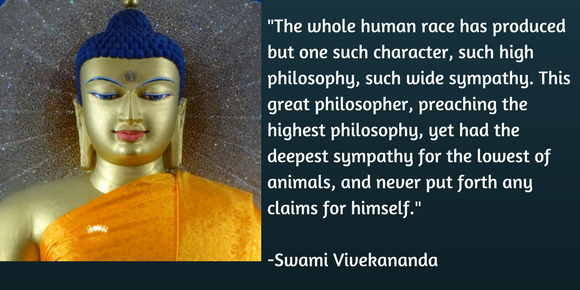
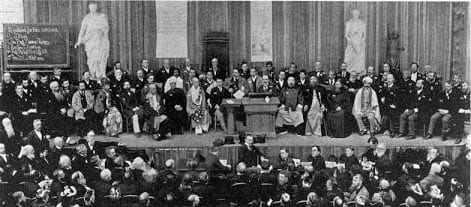
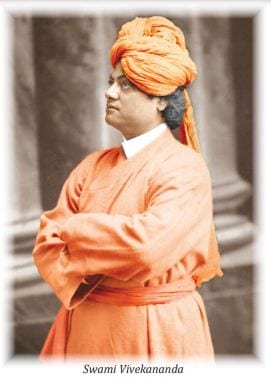
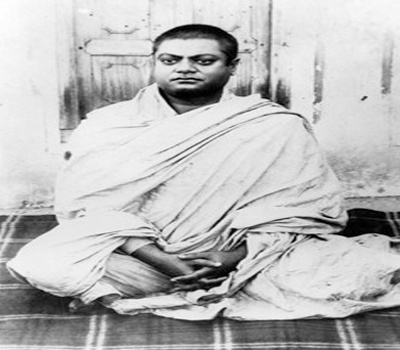

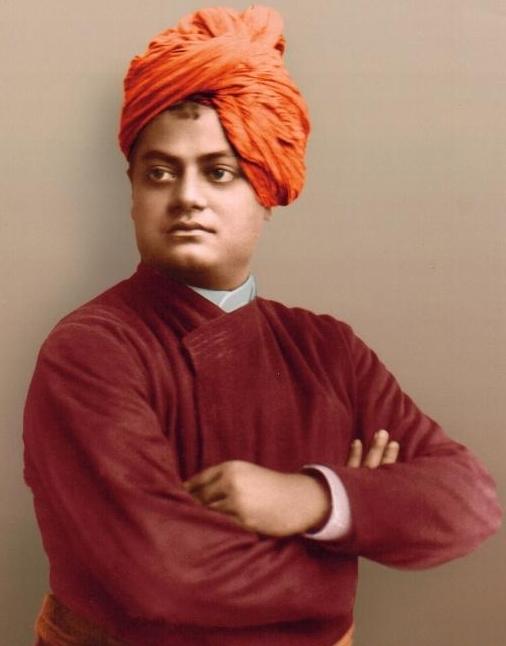
Leave A Comment